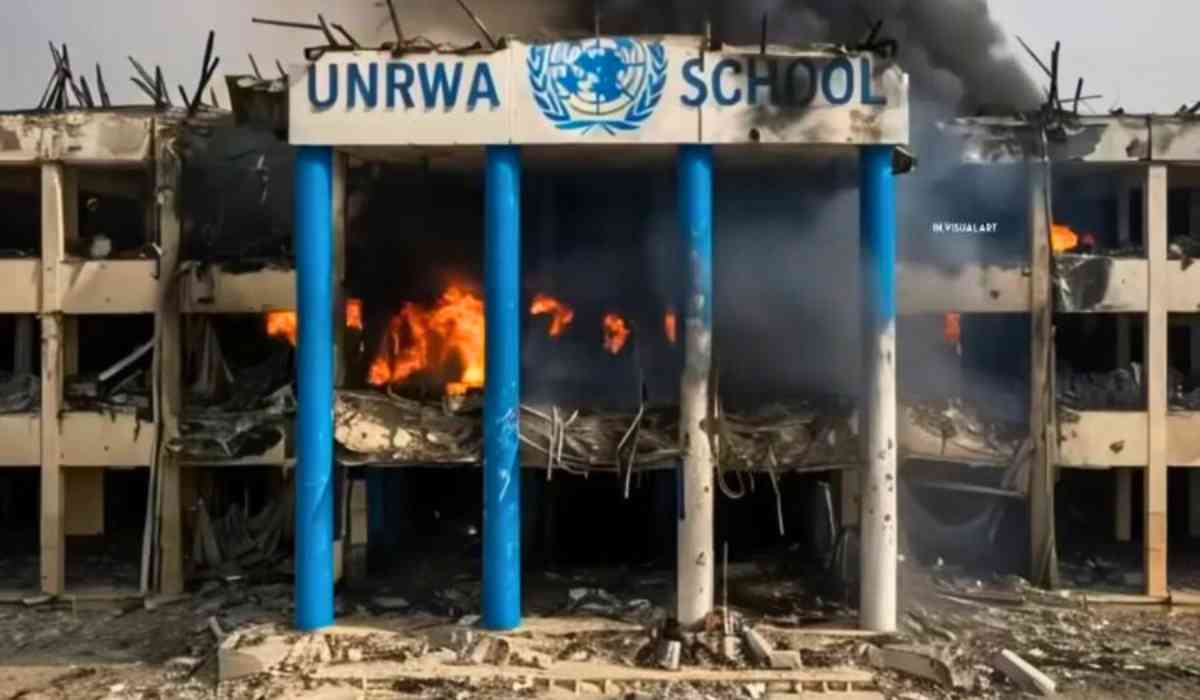The Israeli-Palestinian conflict has reached a critical juncture with recent developments on multiple fronts. The International Court of Justice's ruling declaring Israel's occupation of the West Bank illegal has sent shockwaves through the international community, while ongoing violence in Gaza and a drone attack in Tel Aviv have further escalated tensions in the region.
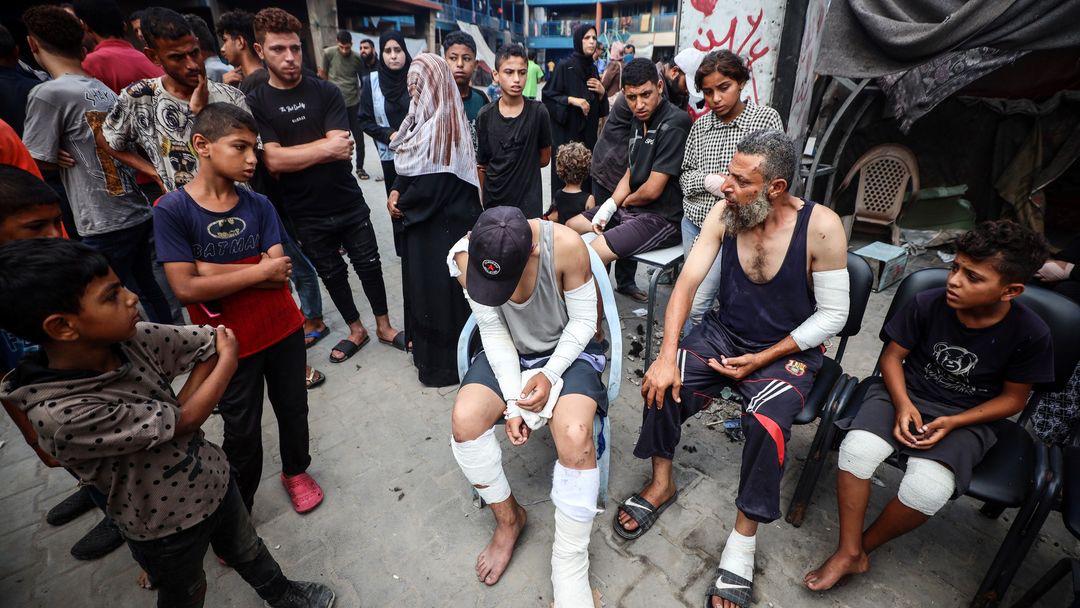
1. International Court of Justice (ICJ) Ruling
The ICJ has declared Israel's occupation of the West Bank illegal under international law, marking a significant ruling in the ongoing Israeli-Palestinian conflict.
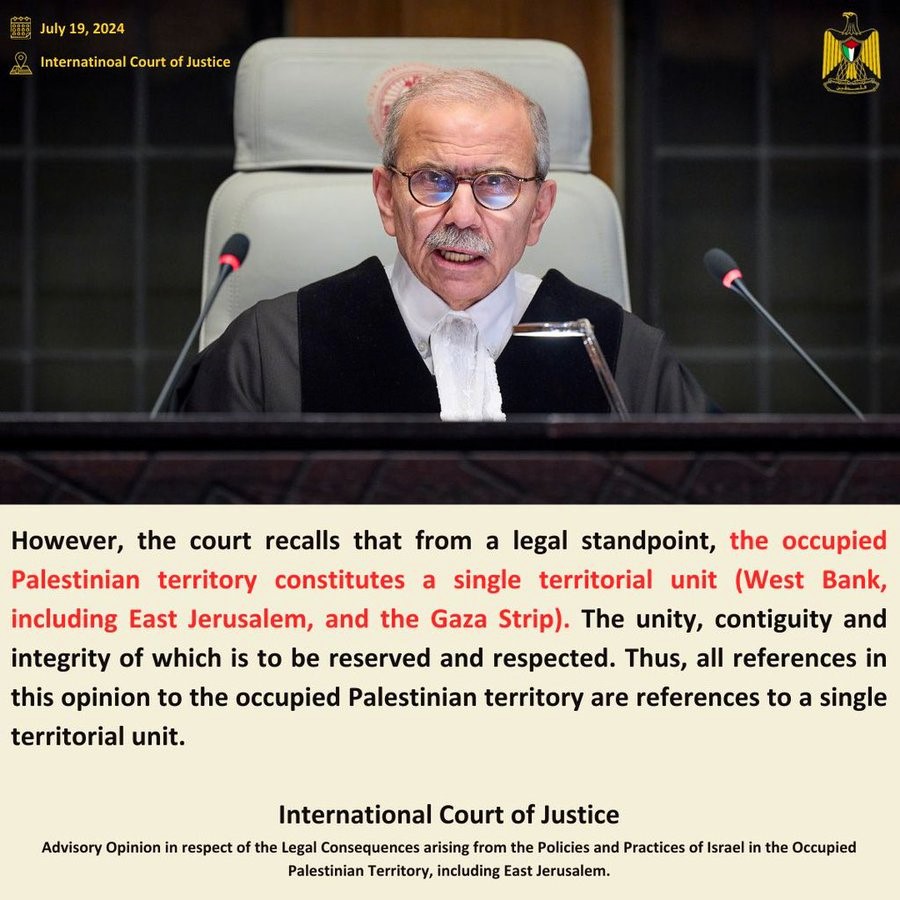
-
The court called for Israel to withdraw settlers, dismantle settlements, and provide reparations to affected Palestinians, describing the occupation as a violation of international human rights and humanitarian laws.
-
Israeli officials vehemently rejected the non-binding ruling, labelling it as biased. Prime Minister Benjamin Netanyahu stated,
"This ruling is a blatant disregard of our security needs and an attempt to undermine Israel’s sovereignty."
-
Palestinian President Mahmoud Abbas hailed the decision as a "historic step towards justice," adding,
"We urge the international community to pressure Israel to comply with this ruling and end its illegal occupation."
-
The ruling has reignited debates within the international community about the effectiveness of international law in resolving long-standing conflicts.
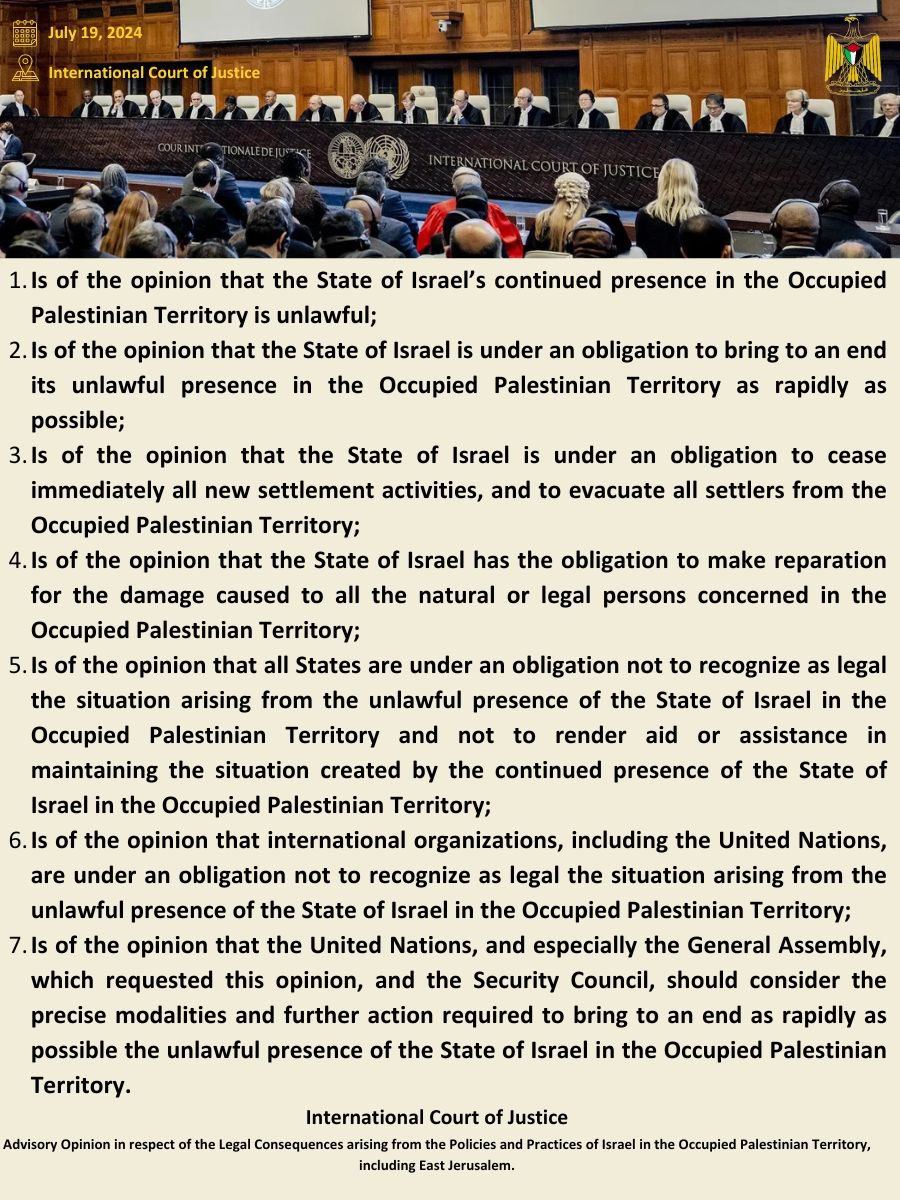
2. Ongoing Violence in Gaza
-
The Israeli military has continued its offensive in Gaza, leading to significant casualties and widespread destruction. The recent escalation has seen at least 50 people killed, including 24 in a devastating strike on the Nuseirat refugee camp.
-
Strikes have targeted densely populated areas such as Gaza City and Jabalia, causing severe damage to residential buildings and infrastructure. Many civilians have been killed or injured, exacerbating the humanitarian crisis.
-
The conflict has displaced thousands of families, forcing them to seek shelter in overcrowded and under-resourced areas. The lack of safe havens and basic necessities has created dire living conditions for many.
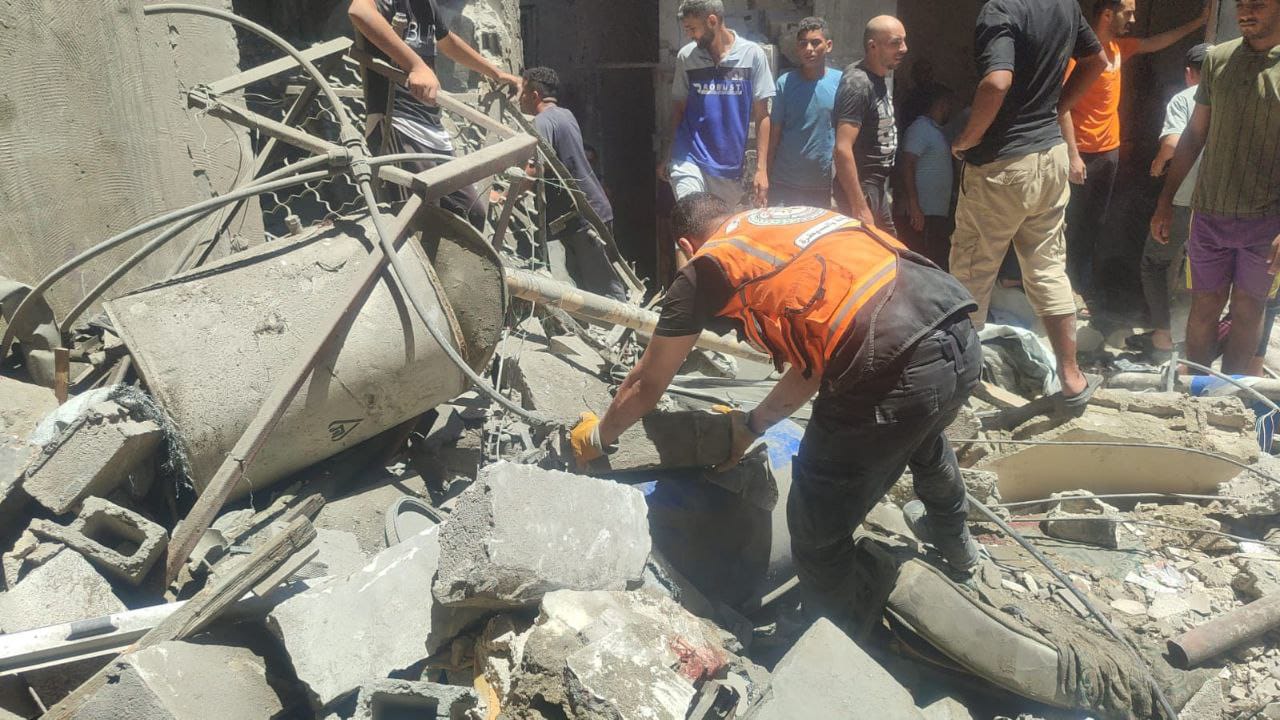
3. Drone Attack in Tel Aviv
-
A recent drone attack in Tel Aviv has resulted in one fatality and left at least ten people injured. The attack was claimed by Yemen's Houthi group, signifying a significant escalation in their involvement in the region.
-
The drone reportedly managed to evade Israel's sophisticated air defence systems, raising serious concerns about the country's vulnerability to such attacks. This incident has sparked a debate about the effectiveness of Israel’s Iron Dome and other defence mechanisms.
-
In response, Israeli Defence Minister Yoav Gallant vowed retaliation, stating,
"We will settle the score with anyone who harms the state of Israel. Our defences will be strengthened to prevent such incidents in the future.
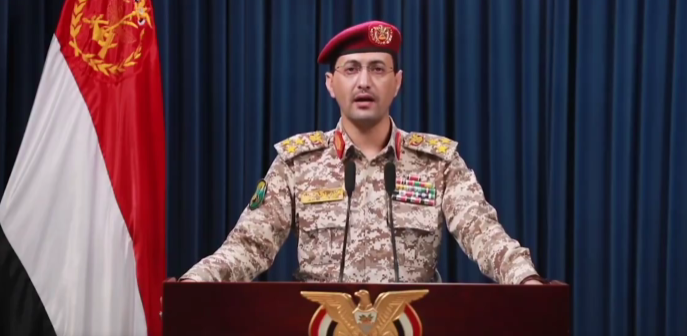
-
The Israeli military has increased air patrols and surveillance to prevent further breaches, but the incident has left many questioning the country's preparedness for unconventional threats.
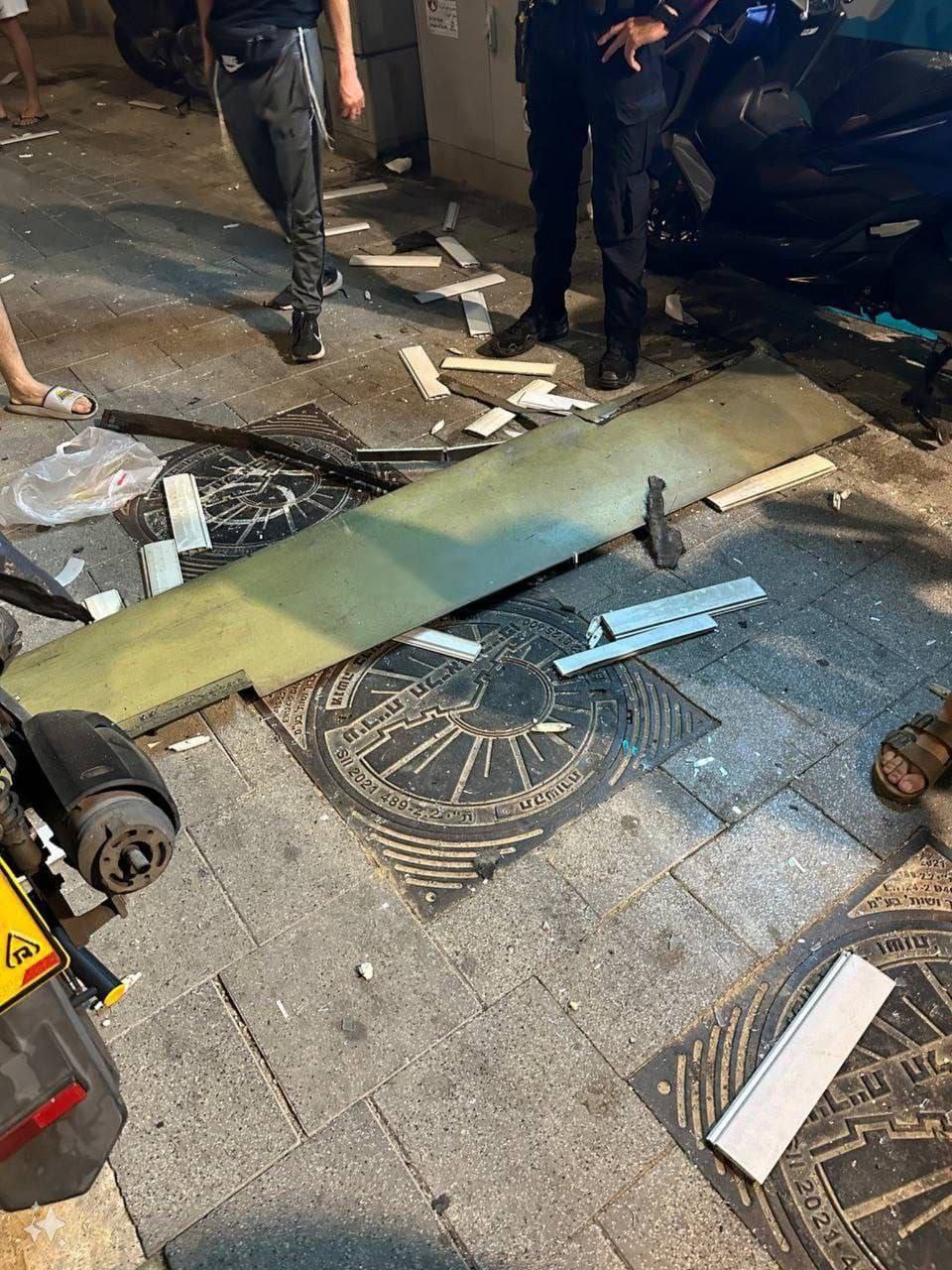
4. Health Concerns in Gaza
- The detection of the polio virus in Gaza’s sewage water has sparked fears of a potential outbreak, adding to the already severe public health crisis in the region.
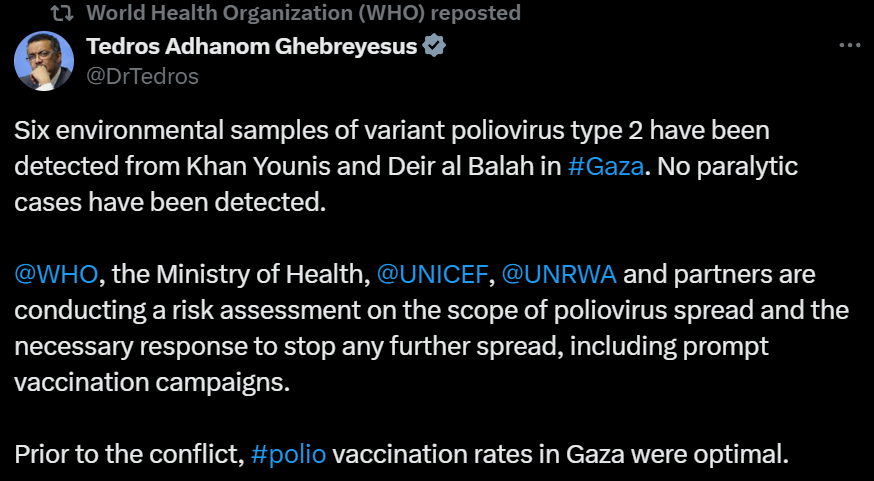
- The World Health Organisation (WHO) has warned that the presence of the virus in sewage indicates it is already circulating among the population, posing a serious threat, especially to children.
-
The healthcare system in Gaza is on the brink of collapse, struggling to cope with the influx of casualties from ongoing violence and the potential spread of infectious diseases. Poor sanitation, overcrowded living conditions, and limited access to medical supplies have compounded the crisis.
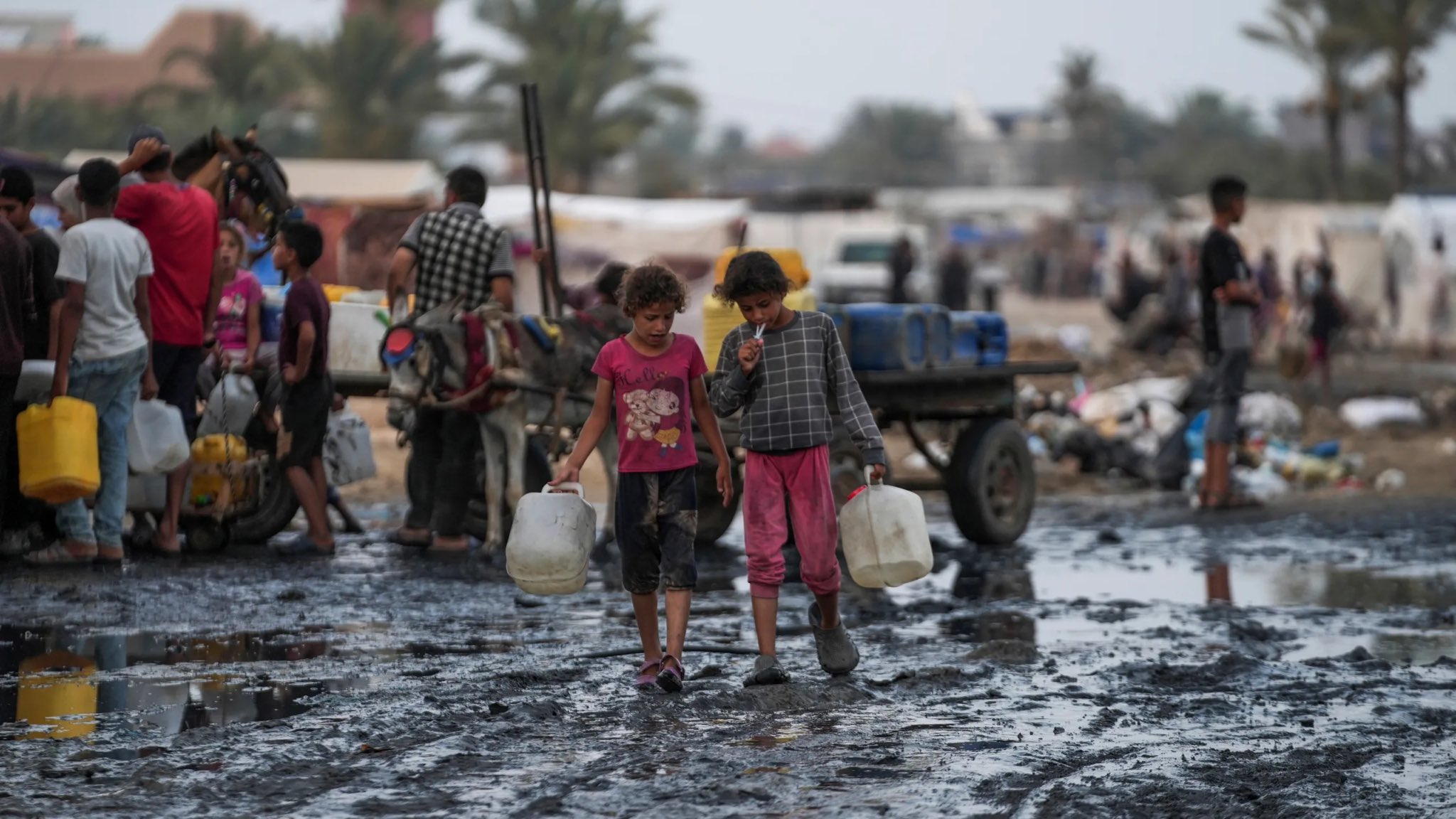
5. International Response
-
The international community has reacted strongly to the recent developments. The UK has announced it will resume funding to UNRWA, providing $27 million to support Palestinian refugees and alleviate some of the humanitarian pressures in Gaza.
- Many countries have expressed support for the ICJ ruling, calling on Israel to comply with international law and urging an immediate halt to settlement activities.
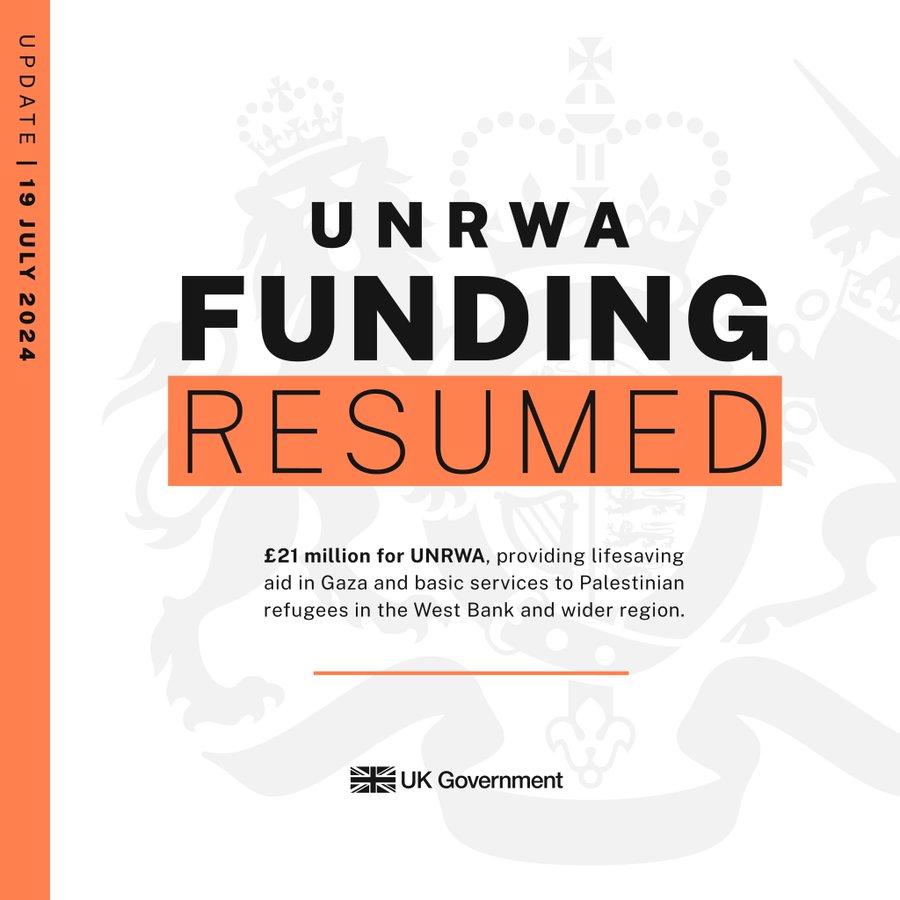
- There have been widespread calls for a cease-fire in Gaza. Various health organisations have emphasised the importance of a ceasefire to address the polio threat and provide much-needed humanitarian aid to the affected population.
-
Despite the strong international stance, the community remains divided. Some nations advocate for more stringent actions against Israel, including sanctions, while others call for renewed peace talks to find a diplomatic resolution to the conflict.
-
New Zealand's Foreign Ministry underscored the urgency of a political solution, stating,
"A two-state solution remains the only viable path to lasting peace and stability in the region."
6. Broader Impact and Regional Dynamics
-
The ongoing conflict between Israel and Gaza has broader implications for regional stability, with the potential to draw in neighbouring countries and escalate into a larger regional conflict.
-
The involvement of Yemen’s Houthi group and increased attacks by Hezbollah from southern Lebanon signify a widening of the conflict, which could destabilise the entire Middle East.
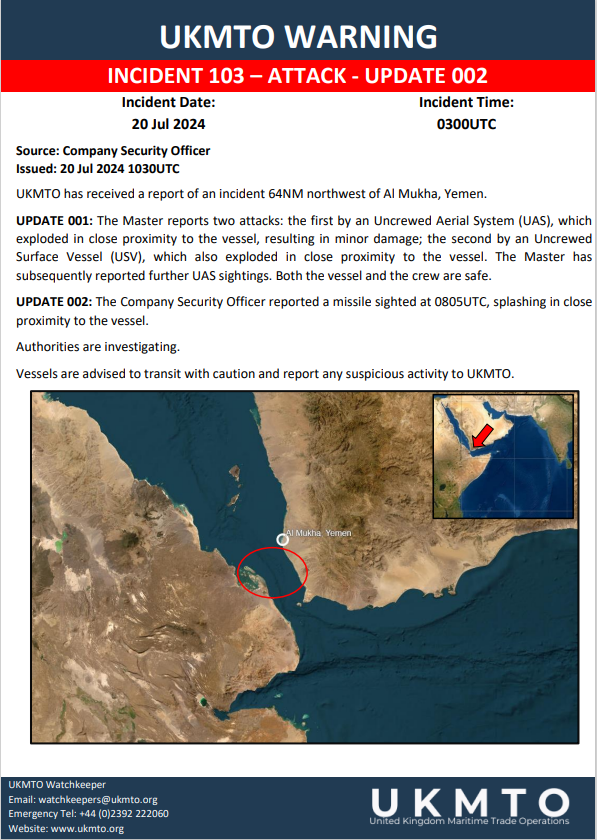
-
Hezbollah has ramped up its attacks on Israeli military targets in the north, citing solidarity with the Palestinian cause. This has led to increased tensions along Israel's northern border and raised fears of a multi-front conflict.
-
Israeli opposition politician Yair Lapid criticised the government, stating, "This attack is proof that the current administration cannot ensure security for its citizens. We need new policies and plans to address these security threats."
-
The escalation has highlighted the urgent need for a comprehensive peace solution that addresses the root causes of the conflict. Without significant diplomatic efforts and international cooperation, the cycle of violence is likely to continue, with devastating consequences for both Israelis and Palestinians.
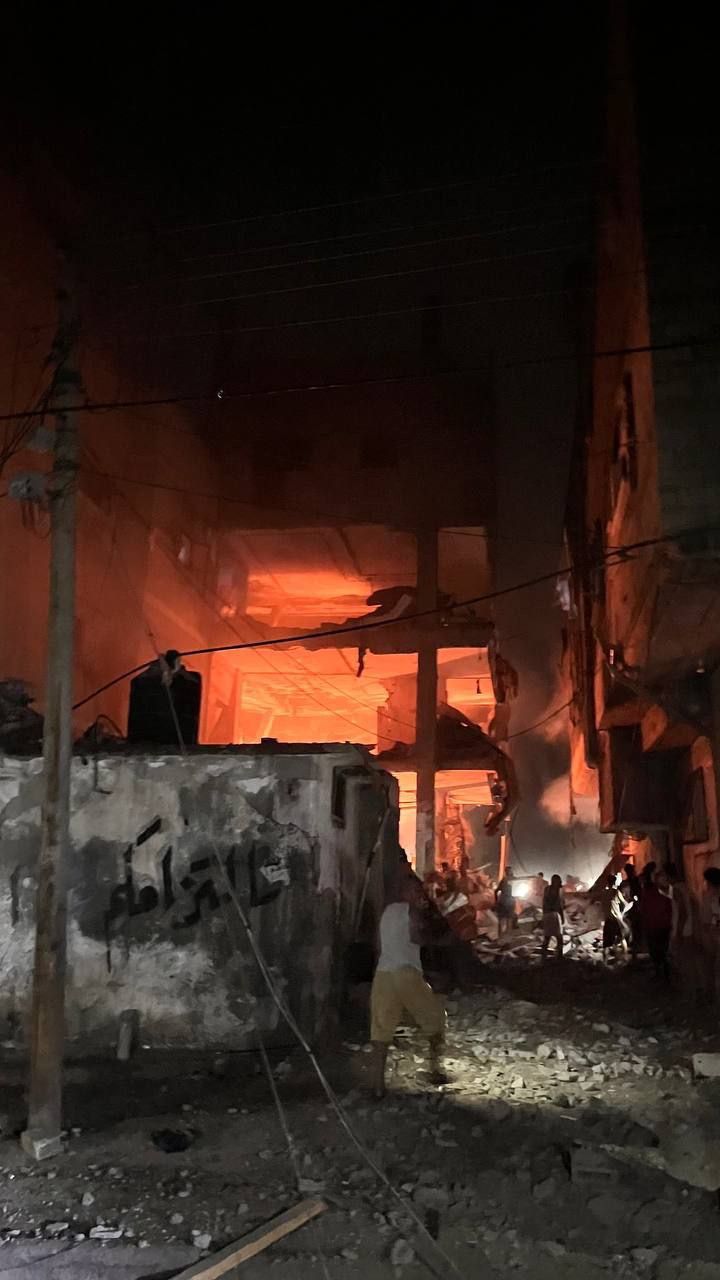
As the situation continues to unfold, the need for a comprehensive and lasting solution to the Israeli-Palestinian conflict has never been more apparent. With humanitarian crises mounting, regional tensions escalating, and international pressure increasing, the path forward remains uncertain. The coming days and weeks will be crucial in determining whether diplomacy can prevail over violence, and whether a peaceful resolution can be found to this long-standing conflict.
Inputs from Multiple Agencies
Media from multiple sources
Ⓒ Copyright 2024. All Rights Reserved Powered by Vygr Media.

